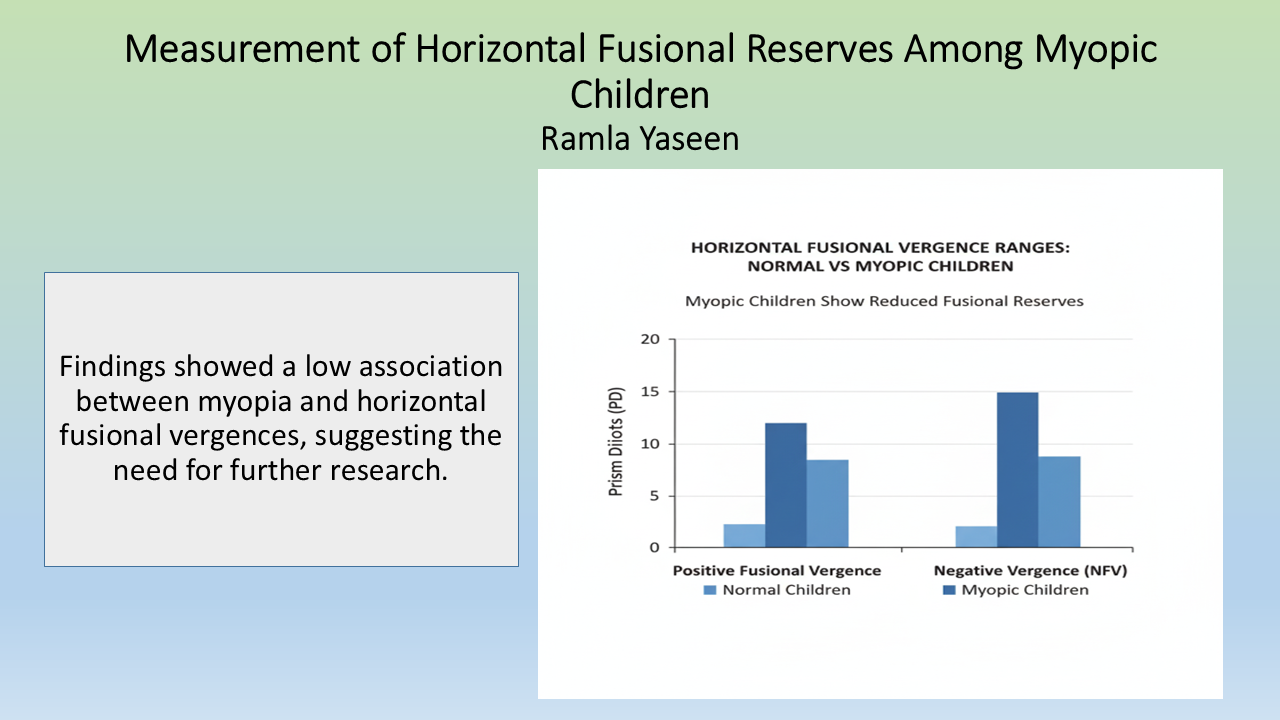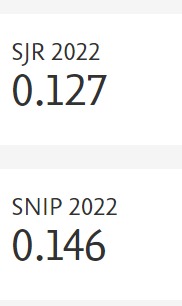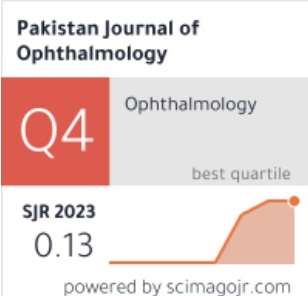Measurement of Horizontal Fusional Reserves Among Myopic Children
Doi: 10.36351/pjo.v41i4.1977
DOI:
https://doi.org/10.36351/pjo.v41i4.1977Abstract
Purpose: To investigate the horizontal fusional vergence among school going myopic children by measuring the positive fusional vergence and negative fusional vergence break point at nearby.
Study Design: Cross-sectional study
Place and Duration of Study: Fatima memorial hospital Lahore, from December 2023 to March2024.
Methods: A total of 60 school-going myopic children aged 5 to 16 years were recruited. Participants were selected using a non-probability consecutive sampling technique, based on predefined inclusion criteria. A comprehensive clinical evaluation was performed, including assessment of visual acuity, strabismus testing, and measurement of the near point of convergence (NPC) using the RAF rule. Fusional vergence ranges were measured at near using a prism bar and a near picture target. Positive fusional vergence (PFV) and negative fusional vergence (NFV) were both assessed with the prism bar. The Chi-square test was applied to determine associations between categorical variables.
Results: Among the participants, 83.3% had normal convergence amplitude, 3.3% demonstrated convergence excess, and 13.3% had convergence insufficiency. There was no statistically significant association between myopia and positive fusional vergence (p = 0.831). Divergence amplitude assessment revealed that 93.4% had normal divergence amplitude, while 6.67% exhibited divergence insufficiency; no cases of divergence excess were observed. Similarly, no statistically significant association was found between myopia and negative fusional reserve (p = 0.52).
Conclusion: Myopia appears to have minimal impact on horizontal fusional vergence in school-going children.

Downloads
Published
How to Cite
Issue
Section
License
Copyright (c) 2025 Ramla Yaseen, Tajallah Arshad, M.Hamza Najam

This work is licensed under a Creative Commons Attribution-NonCommercial 4.0 International License.






